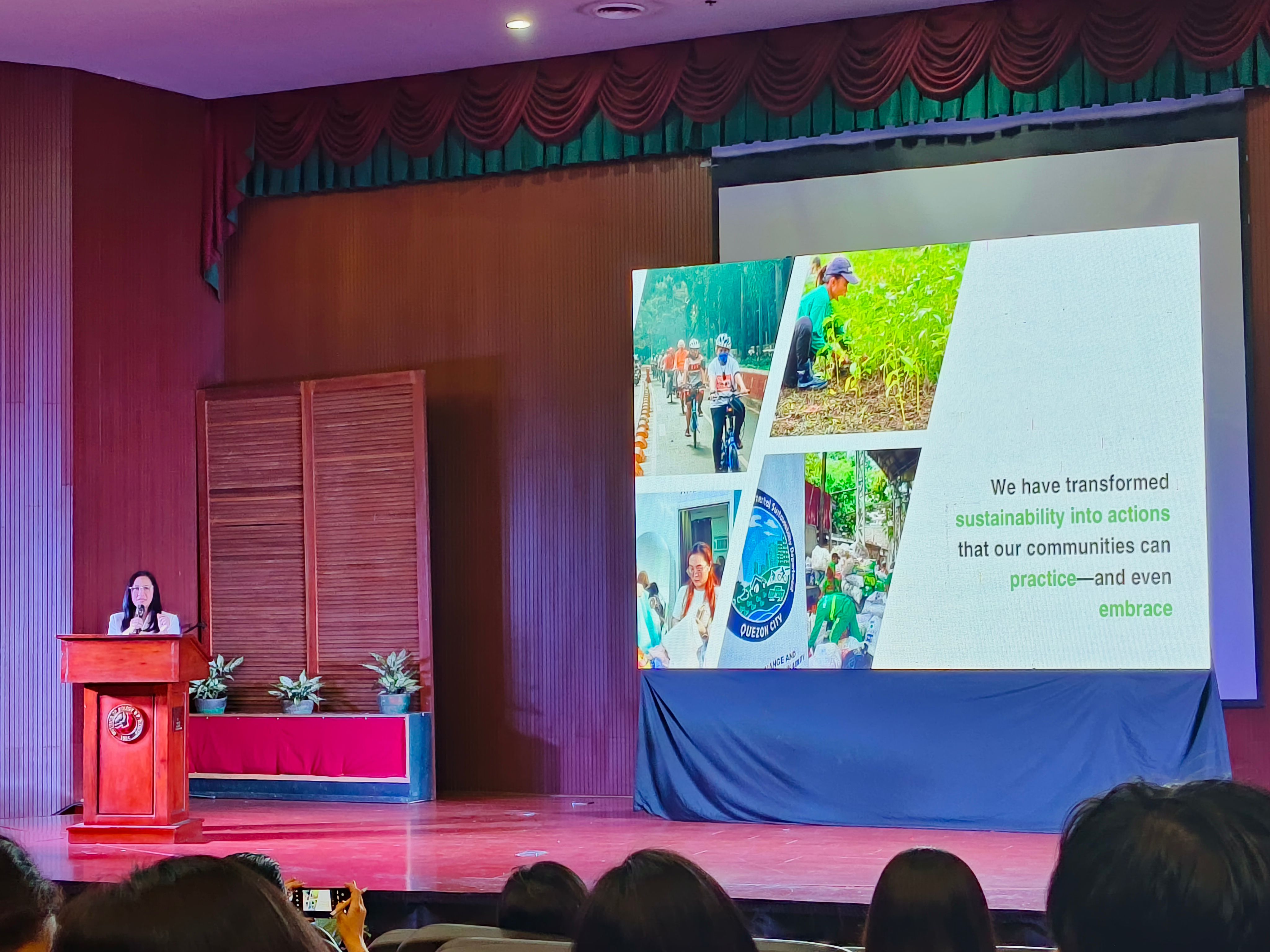Mayor Joy calls for urgent climate action, sustainability
By Hannah Nicol
Quezon City Mayor Joy Belmonte called for urgent climate action and sustainability during the Manila Bulletin Sustainability Forum 2024 held at the Institute of Biology at the University of the Philippines Diliman, Quezon City on Tuesday, November 19.

During the forum, Belmonte highlighted the interconnectedness of climate issues with social inequality, emphasizing that the poorest and most vulnerable communities are often the hardest hit by extreme weather events.
She pointed out how urban areas, once resilient to flooding, are now prone to it due to rapid urbanization and the loss of green spaces.
Similarly, farming and urban communities face challenges like drought and water supply issues.
“The crisis exacerbates inequality, with poorer communities suffering the most from natural disasters, heatwaves, and limited access to resources like air conditioning and clean water,” she said.
Belmonte presented alarming data, noting that the world is only six years away from depleting its carbon budget to limit global warming to 1.5 degrees Celsius.
As one of the most climate-vulnerable countries, the Philippines bears a disproportionate burden of climate impacts despite contributing minimally to global emissions.
She shared Quezon City’s ambitious sustainability targets, including a 30 percent reduction in carbon emissions by 2030 and achieving net-zero emissions by 2050. However, she acknowledged the significant financial challenges in meeting these goals, as global climate finance commitments remain largely unmet.
Despite these obstacles, Quezon City is making strides through initiatives such as reducing plastic waste, adopting renewable energy in public buildings, and promoting recycling.
The city’s internationally recognized Trash-to-Cashback Program incentivizes residents to recycle by awarding environmental points redeemable for groceries and utility payments.
“We are incentivizing recycling at the source through our internationally recognized trash-to-cashback program,” she said. “Building on these efforts, we have taken a bold stand against single-use plastics.”
The city also integrates sustainability into daily life by encouraging refillable options in stores, promoting upcycling, and tackling fast fashion’s environmental impact.
She shared how the city eliminated single-use water bottles at all government-funded events and recently reinforced this commitment at the Q-Cinema Film Festival, ensuring no single-use plastics were used.
Belmonte commended youth-led initiatives like the Rescue Seafood Basket Program in Barangay Commonwealth, which repurposes surplus seafood to combat food waste and malnutrition.
She said that the program was received under President Bongbong Marcos’ Walang Gutom Program and the Barangay Payatas’ textile upcycling efforts.
“So may yung mga batang tinimbang namin at mal-nourish, in-assign namin sa ating mga SK,
at nag-invento sila ng napagagandang programa ang Rescue Seafood Program na ito, which was awarded by President Bongbong Marcos sa kanyang Walang Gutom Program sa Malacanang (We identified malnourished children from our weighing activities and assigned them to our SK leaders. They came up with the innovative Rescue Seafood Program, which was recognized by President Bongbong Marcos under his Walang Gutom Program at Malacañang),” she said.
Belmonte urged the youths to continue their activism and emphasized their critical role in shaping a sustainable future.
She also reaffirmed Quezon City’s support for youth-led climate movements and freedom of expression, underscoring the importance of challenging decisions that harm the environment.
The mayor urged everyone to embrace their role in the fight for climate justice and sustainability, drawing inspiration from community-led solutions and the dedication of young climate advocates.